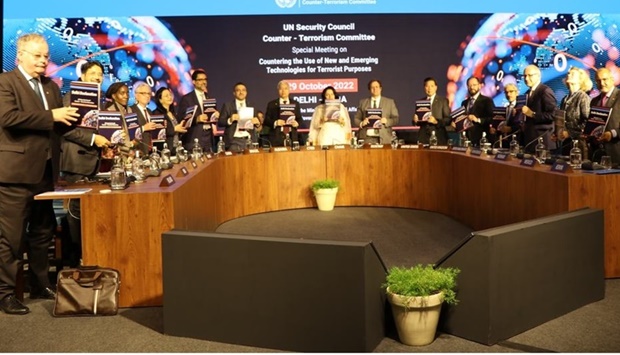A two-day meeting of the UN Security Council Counter-Terrorism Committee in India has ended with the adoption of a document committing Member States to prevent and combat digital forms of terror, notably using drones, social media and online terrorist financing.
The non-binding document, known as The Delhi Declaration on countering the use of new and emerging technologies for terrorist purposes was adopted in the Indian capital on Saturday, following a series of panels that involved Member States representatives, UN officials, civil society entities, the private sector, and researchers.
The declaration aims to cover the main concerns surrounding the abuse of drones, social media platforms, and crowdfunding, and create guidelines that will help to tackle the growing issue.
The UN Secretary-General, Antonio Guterres, underscored that there must be "concrete measures to reduce these vulnerabilities while committing to protect all human rights in the digital sphere." In a video message, Guterres added that human rights could only be achieved through effective multilateralism and international cooperation, with responses that are anchored in the values and obligations of the United Nations Charter and the Universal Declaration of Human Rights.
Representing the Human Rights Office, Scott Campbell, who leads the digital technology team, echoed the Secretary-General, explaining that "respecting rights when countering terrorism is fundamental to ensuring sustainable and effective efforts to protect our security." "Approaches that cross these important lines not only violate the law, but they also undermine efforts to combat terrorism by eroding the trust, networks, and community that is essential to successful prevention and response," he said.
He stressed that companies and States should be cautious when filtering and blocking social media content, as it can "affect minorities and journalists in disproportionate ways." During the closing session of the meeting, the Committee chairperson, Ambassador Ruchira Kamboj of India, stated that the outcome document takes note of the challenges, and proposes "practical, operational, and tactical possibilities of addressing the opportunities and the threats posed by the use of new and emerging technologies for terrorist purposes."

The non-binding document, known as The Delhi Declaration on countering the use of new and emerging technologies for terrorist purposes was adopted in the Indian capital on Saturday, following a series of panels that involved Member States representatives, UN officials, civil society entities, the private sector, and researchers.
